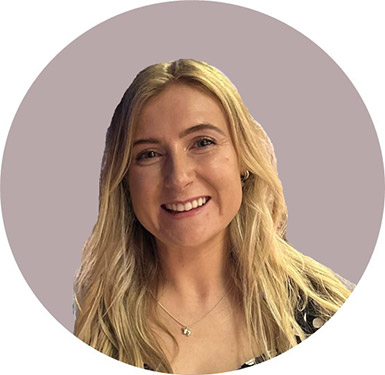- Home
- Farmbench - Benchmarking benefits Branston potato growers
Farmbench - Benchmarking benefits Branston potato growers
Our benchmarking team have been working with potato growers, to help them get to know their cost of production better as well as earning themselves points for the Tesco QVIS scheme. Laura, one of the team working directly with the growers gives an update on the project to date and where it is headed.

The British potato sector is a specialised and complex one, and while I am nowhere near an expert, it is plain to see that the industry’s structure differs greatly to the Cereals and Oilseeds industry I more commonly have experience of in north Northumberland. There are now fewer than 1700 growers in GB, primarily supplying five large packers, with contract growing becoming more and more popular as a way for these businesses to insure against price volatility and secure a place in the market. As elsewhere in agriculture these contracts often come with points systems, put in place by the retailer.
How the project started
Tesco is one of those retailers requiring growers to complete an annual scorecard, using a range of activities each worth a set number of points. In Tesco’s case this scheme is called QVIS (Quality, Value, Innovation, Service), facilitated by Branston the potato packing company sitting between Tesco and the growers. Branston is one of the largest in the UK, handling around 350,000 tonnes per year from growers throughout England and Scotland. One of the scheme’s aims is for growers to have a sustainable business and know their cost of production. In 2019 Farmbench was chosen as the tool to calculate this, so here started my involvement as a Farm Economics Knowledge Exchange Manager (KEM).
Year 1
Each grower choosing to take part had to complete a full data upload to calculate their cost of production on Farmbench by February 2020. Our senior KEM at the time, Doreen Anderson co-ordinated the project, working with myself and fellow KEM David Pett, we split the growers regionally into Scotland, East of England and West of England groups. We each reached out to the growers in our region to offer them as much support as they needed in their first year. As a Farmbench user you are probably aware that the first-time uploading is the trickiest, while finding the information and navigating the system. We offered support depending on the growers needs ranging from farm visits to remote support by email. We were really pleased that over 70 businesses that year completed their Farmbench upload to receive QVIS points. Of course, they got much more than the points alone, with bespoke reports detailing each pound of their cost of production for their potato enterprises, and access to anonymised potato benchmarks for top 25%, middle 50% and bottom 25%.
Year 2
Moving into year two Branston’s next deadline was October 2020 for upload of harvest 2019 data, so David and I got back in touch with the growers we had worked with last season. Julie Clark, another member of the KEM team stepped into Doreen’s shoes to work with the Scottish growers, and James Lamb our current senior KEM helped to co-ordinate the project. Due to COVID-19 we were unable to visit any growers, so between their busy harvest we supported growers, with calls and emails. Uploads were generally much quicker, as much of the information was carried forward from year one, though I found some growers wanted to get more out of Farmbench, splitting up their crops into different varieties or markets to get more detailed reports. By the end of year two we had over 80 businesses qualifying for QVIS points, all of which had access to individual, multi enterprise and benchmark reports.
Over both upload periods we were keen that growers not only achieved the points they needed but got as much back from the Farmbench experience as we could offer. As of January 2021 David, Julie and I got in touch with the growers who had completed their second upload to offer them a place in a Farmbench potato Business Improvement Group. Around 50% of those growers have registered their interest in taking part. We are currently in the process of setting up these groups and alongside the Potato team hope to offer the growers a chance to share experiences, learnings, challenges, ideas and solutions with each other.
Where next
Aside from the Potato Business Improvement Groups, David, Julie and I look forward to continuing to support growers this summer for their third upload. The next Branston deadline is July 2021, which will see their 2020 harvest being recorded, giving growers three years of reports to access.
Try Farmbench today
If you're interested in delving into your potato business further, register or sign into Farmbench or contact your local Benchmarking Knowledge Exchange Manager for further details

